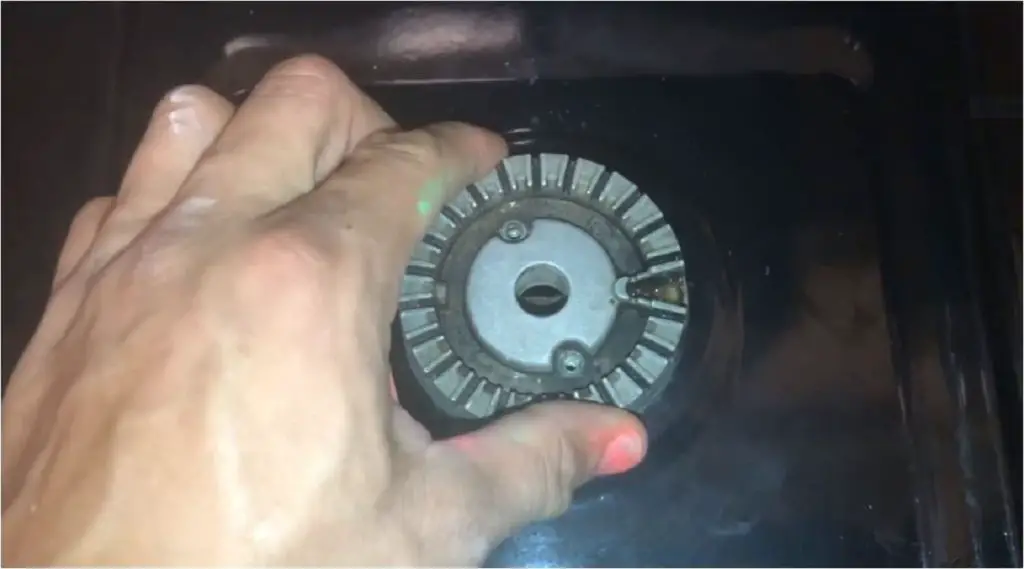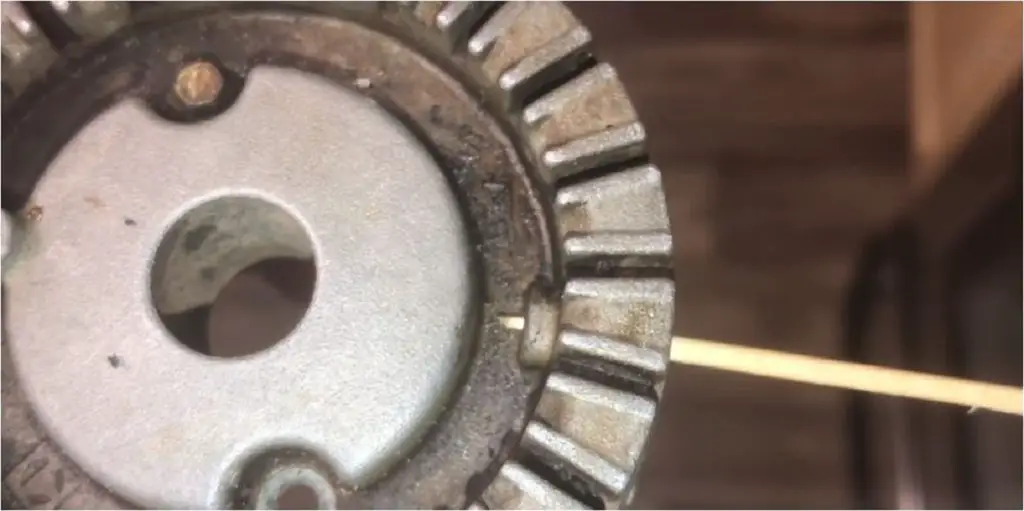| Note: This article may contain affiliate links, which means if you make a purchase following our links won’t cost you extra, but we may earn a commission. Learn more |
Gas burners not lighting all the way around can be a common issue. This problem may manifest in several ways and may involve a variety of related concerns.
The issue of a gas stove not lighting but clicking often indicates a malfunction in the ignition system. Clicking without ignition may be due to a blockage in the burner or a problem with the igniter itself.
In a situation where the gas stove won’t light but you can smell gas, there may be a leak in the connections or the gas line. It’s essential to address this promptly as it could be a potential safety hazard.
Dealing with a gas stove not lighting and not clicking might suggest that the igniter is either completely broken or not receiving power. In this case, professional examination and repair might be necessary.
If the gas burner won’t light after cleaning, residue from cleaning products or debris might be obstructing the flow of gas. Careful inspection and removal of any obstruction may resolve this.
A gas stove burner not working properly can be symptomatic of a larger issue with the appliance’s internal components or connections. Regular maintenance can prevent this from becoming a major problem.
In cases where the gas burner won’t light after getting wet, allowing the burner and igniter to dry thoroughly often resolves the problem. Keeping the burner dry during cleaning will prevent this issue from reoccurring.
For those experiencing a GE gas stove not clicking or lighting, it could be specific to that particular brand or model. In such scenarios, consulting the user manual or contacting the manufacturer’s support service for assistance would be the best course of action.

6 common reasons gas burners not lighting and how to fix them
1. Clogged Burner Ports
Issue
Dirt, grease, and food particles can clog the burner ports, preventing the gas from flowing uniformly.
Solution
Clean the ports with a thin wire or a specialized brush, and use a vacuum to remove any loose debris. Regular cleaning can keep this issue at bay.
2. Igniter Misalignment
Issue
The igniter may be misaligned, causing uneven or incomplete lighting of the burner.
Solution
Align the igniter by gently adjusting its position using a pair of pliers or by following the manufacturer’s instructions.
3. Faulty Ignition Switch
Issue
A faulty ignition switch can cause sporadic or incomplete lighting of the burner.
Solution
Replacing the ignition switch with a new one, preferably with the assistance of a professional, can fix this problem.
4. Inconsistent Gas Pressure
Issue
Inconsistent gas pressure can cause the burner to light unevenly, or not at all.
Solution
Contact a professional to inspect the gas line and regulator, as adjustments to gas pressure should be handled with care.
5. Wet Burner After Cleaning
Issue
Water or moisture trapped in the burner can impede the gas flow.
Solution
Allow the burner to dry completely before attempting to light it again. Using a hair dryer in a cool setting can expedite the drying process.
6. Gas Line Issues
Issue
Leaks or blockages in the gas line can lead to an uneven gas flow.
Solution
It’s advised to contact a professional technician to inspect and repair the gas line, as it requires expertise and specialized tools.
Gas Stove Burner Partially Lights
A partially lit gas stove burner can be both a nuisance and a safety concern. It usually indicates an uneven flow of gas, resulting in an inconsistent flame.
1. Clogged Burner Ports
Issue
Over time, food particles, grease, and other debris can clog the burner ports, causing the gas to flow unevenly.
Solution
By using a thin wire or specialized brush, carefully remove any obstructions from the ports. Regular cleaning will prevent this problem from recurring.
2. Misaligned Burner Cap
Issue
If the burner cap is not aligned correctly, it can interfere with the gas flow, resulting in a partial flame.
Solution
Realigning the burner cap according to the manufacturer’s instructions can fix this issue. Regular inspection will help keep the cap in its proper place.
3. Faulty Ignition System
Issue
A malfunction in the ignition system can cause the burner to light unevenly.
Solution
Inspecting the ignition system for any obvious damage and replacing any faulty components can restore proper lighting. Professional assistance might be necessary for complex repairs.

Gas Burner Won’t Light After Cleaning/Getting Wet
A gas burner that refuses to light after cleaning or getting wet is a common but fixable problem.
1. Moisture in Burner Ports
Issue
Water or moisture trapped in the burner ports can prevent the gas from igniting.
Solution
Allowing the burner to dry completely before attempting to light it again can resolve this. A hair dryer on a cool setting can expedite drying.
2. Residue from Cleaning Products
Issue
Residue from cleaning products may obstruct the flow of gas, preventing the burner from lighting.
Solution
Thoroughly rinsing and drying the burner after cleaning with any liquid solutions can prevent residue build-up.
3. Damage from Water
Issue
Water can cause rust or other damage to the burner components.
Solution
Avoiding excessive water during cleaning and drying the burner promptly can prevent damage. Regular inspection for rust or wear will also ensure that the burner remains in good condition.
Precautions
- Turn off the Gas Supply: Before attempting any repairs or cleaning, ensure the gas supply is turned off to prevent any leaks or accidental ignition.
- Use Proper Tools: Utilize tools that are suitable for the task at hand, such as non-abrasive brushes or non-flammable cleaning agents.
- Seek Professional Help if Needed: If the issue is complex or beyond the homeowner’s capability, it’s advisable to consult a professional technician. Incorrect handling may lead to more severe problems or safety risks.
- Follow Manufacturer’s Instructions: Always refer to the user manual or manufacturer’s instructions, as there might be specific guidelines or warnings for your particular model of stove.
- Avoid DIY on Critical Parts: While some minor issues can be addressed at home, critical parts like the ignition system should be handled with care. Incorrect handling can lead to malfunctioning and potential risks.